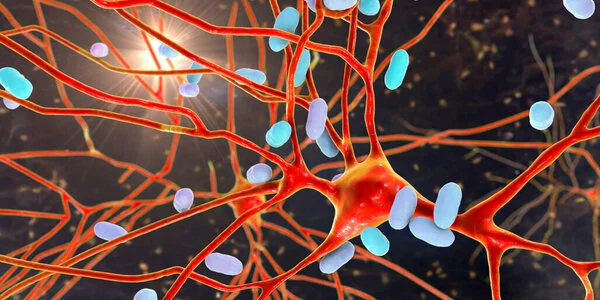pH is an important environmental factor that influences the physiology, ecology, and pathogenicity of oral biofilms that colonize the hard tissues of the human mouth. Much attention has been paid to the production of organic acids by pathogenic oral bacteria via carbohydrate metabolism.
Details of how proteins produced by oral epithelial cells protect humans against viruses entering the body through the mouth have been discovered by researchers from the University of Louisville School of Dentistry and their colleagues. They also discovered that oral bacteria can suppress the activity of these cells, making them more vulnerable to infection.
The oral bacteria Porphyromonas gingivalis reduces the production and effectiveness of interferon lambdas, a family of proteins produced by epithelial cells in the mouth that serve to protect humans from viral infection.
“Our studies identified certain pathogenic bacterial species, P. gingivalis, which cause periodontal disease, can completely suppress interferon production and severely enhance susceptibility to viral infection,” said Juhi Bagaitkar, assistant professor in the UofL Department of Oral Immunology and Infectious Disease. “These resident oral plaque bacteria play a key role in regulating anti-viral responses.”
Our studies identified certain pathogenic bacterial species, P. gingivalis, which cause periodontal disease, can completely suppress interferon production and severely enhance susceptibility to viral infection.
Juhi Bagaitkar
Bagaitkar and Richard Lamont, professor and chair of the UofL Department of Oral Immunology and Infectious Disease, led the work, with first author Carlos J. Rodriguez-Hernandez and other colleagues at UofL and at Washington University in St. Louis. The findings were published in December in PNAS.
Viruses that infect the gastrointestinal tract and lungs, such as SARS-CoV-2, human immunodeficiency virus (HIV), herpes simplex, and cancer-causing viruses, such as human papillomavirus, frequently enter the body through the mouth (HPV).
P. gingivalis, a common oral bacterium that causes periodontitis, has been linked to a variety of other diseases, including Alzheimer’s and rheumatoid arthritis. Recent clinical trials have shown that immune suppression in periodontitis patients can increase susceptibility to HIV, herpes simplex, and HPV.

Improved understanding of how interferons provide broad antiviral protection and activate antiviral genes to protect people from viruses, as well as how P. gingivalis compromises that protection, could lead to clinical approaches to increase that protection.
P. gingivalis has been linked to a variety of diseases and conditions, including rheumatoid arthritis, Alzheimer’s disease, and esophageal cancer, according to research at the University of Louisville.
Bagaitkar was one of the first junior faculty members whose research was supported by the National Institute of General Medical Sciences’ Center of Biomedical Research Excellence (CoBRE) for research in microorganism disease research.
The biofilms that colonize the tissues of the mouth are constantly subjected to changes in environmental conditions. pH and nutrient source and availability have been shown to have the greatest impact on the composition and biochemical activities of oral biofilms, and thus on their pathogenic potential. These factors are crucial in the development of one of the most common infectious diseases in humans, dental caries.
















